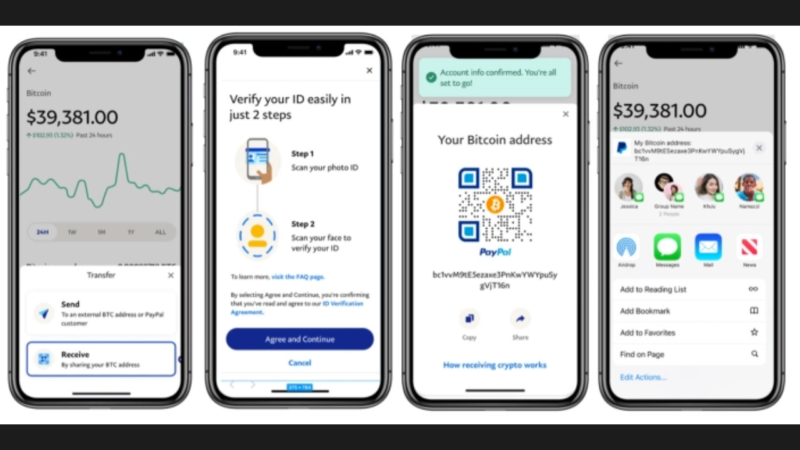How BaaS Puts Blockchain Power in Your Hands

The acceptance of blockchain technology is steadily growing across various industries. Notably, the Nigerian government recently lifted the ban on cryptocurrency, officially recognizing it as legal tender in Nigeria. Many other sectors have also embraced blockchain technology. However, developing a blockchain from the ground up can be both expensive and challenging. This is where Blockchain as a Service (BaaS) comes into play. BaaS utilizes cloud-based solutions to construct, host, and operate blockchain applications. With the cloud-based provider ensuring the system’s functionality and keeping it updated, BaaS offers a more accessible and cost-effective approach to implementing blockchain technology.
What is BaaS
The demand for Blockchain as a Service (BaaS) emerged from the pursuit of a seamless integration of blockchain technology into the economy. However, the development and deployment of these applications entail a significant level of maintenance, security, and cryptography, posing challenges for industries to manage effectively.
Within the framework of BaaS, blockchain technology empowers companies and industries to create their own blockchain applications for their products with the assistance of a cloud developer. Cloud developers provide a comprehensive array of services that streamline the process of creating blockchain applications. This encompasses tasks such as smart contract creation, transaction management, and ensuring product authenticity. This system proves to be more efficient, especially for start-ups that lack the resources to maintain a new blockchain technology independently.
Features of BaaS
For a proper understanding of blockchain-as-as-service, let’s take a look at its amazing properties
-
Cost-Effective
Integrating a new blockchain technology into an industry can be prohibitively expensive due to the higher maintenance costs and the substantial expenses associated with purchasing hardware and software devices. However, BaaS offers a distinct advantage by accommodating various payment methods, including installment payments, eliminating the need for upfront costs.
-
Security
Both blockchain technology and Blockchain as a Service (BaaS) technology provide scalable security measures. However, implementing blockchain technology necessitates a higher level of expertise to ensure effective system security. In contrast, BaaS offers prebuilt security protocols and standard measures to ensure efficiency.
-
Scalability
Scalability stands as a crucial factor to take into account. BaaS providers present a scalable infrastructure capable of expanding alongside your business, whereas constructing a blockchain from the ground up may face limitations in scalability and demand substantial resources for maintenance.
-
Governance
Governance holds significance when employing BaaS. Organizations must ensure they possess the requisite control and oversight over their blockchain applications. This encompasses considerations such as data ownership, privacy, and compliance.
-
Customizable Templates
For individuals seeking to sidestep the task of constructing their architecture from scratch, enterprises providing blockchain services can furnish templates. These templates allow users to seamlessly integrate into an existing system and applications. Oracle’s Blockchain Cloud Service, for instance, empowers organizations to construct their networks on its platform, ensuring future developments and features can be incorporated without the need for extensive code reworking.
Use case
1. Amazon’s AWS blockchain services make it simple to share information and easily connect with the popular AWS cloud service.
2. IBM has developed an efficient model allowing users to record and check transactions at audit levels, ensuring transparency and accuracy.
3. An affordable and low-risk platform by IBM facilitates easy collaboration and experimentation with new business processes before official in-house launches.
4. R3 Corda, with its large group of collaborators, approximately 100 financial institutions, enables global transactions without central authorities. Through blockchain collaboration, companies ensure accurate and secure transactions without discrepancies or risks.
Blockchain as a Service (BaaS) simplifies blockchain adoption for industries, offering cost-effective, secure, and scalable solutions. With cloud-based assistance, it enables easy creation of blockchain apps, particularly beneficial for startups. Key features include cost-effectiveness, security protocols, scalability, and governance controls. Real-world examples like Amazon’s AWS, IBM, and R3 Corda highlight practical applications, making BaaS a user-friendly gateway for businesses to harness blockchain benefits.






